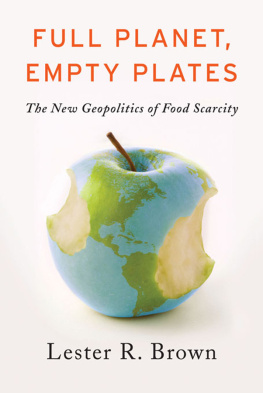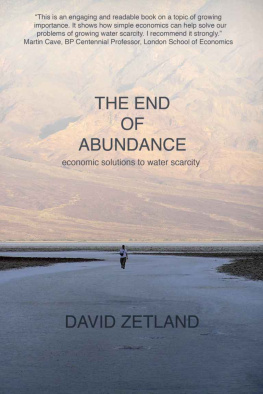Fredrik Albritton Jonsson is Associate Professor of British History, Conceptual and Historical Studies of Science at the University of Chicago. His research ranges from the British Empire to environmental history and the Anthropocene. He is the author of Enlightenments Frontier: The Scottish Highlands and the Origins of Environmentalism (Yale University Press, 2013) and co-author of Green Victorians: The Simple Life in John Ruskins Lake District (with Vicky Albritton, University of Chicago Press, 2016). His new project focuses on the history of the stationary state and the rise of cornucopianism in the nineteenth century.
John Brewer is Eli and Edythe Broad Professor Emeritus in Humanities and Social Sciences at Caltech and Faculty Associate of the History Department, Harvard University. His many books include The Pleasures of the Imagination: English Culture in the Eighteenth Century (HarperCollins, 1997), which won the Wolfson Prize; The Sinews of Power: War, Money and the English State, 16881783 (Knopf 1989); and (with Frank Trentmann) Consuming Cultures, Global Perspectives: Historical Trajectories, Transnational Exchanges (Oxford and New York: Berg, 2006). He is currently engaged in a study of Vesuvius in the eighteenth and nineteenth centuries.
Heather Chappells is Researcher and Instructor in Geography at the University of British Columbia in Vancouver, Canada. She is an interdisciplinary social scientist bringing perspectives from geography, sociology and science and technology studies to address the sustainable governance of networked resources. Her research focuses on the dynamics of infrastructure systems and their interface with practices of sustainable consumption, primarily in the energy and water sectors. Recent projects and papers have examined the dynamics of disruption and demand, including responses to drought and energy shortages. Her publications include Infrastructures of Consumption: Environmental Innovation in the Utility Industries (Earthscan, 2005) and Sustainable Consumption: The Implications of Changing Infrastructures of Provision (Edward Elgar, 2004).
Elizabeth Chatterjee is Permanent Lecturer in Political Science at Queen Mary University of London. She was formerly a postdoctoral scholar at the University of Chicago and a fellow of All Souls College, Oxford. Her research explores energy policy and political institutions in India, including recent publications in Contemporary South Asia (2017) and World Development (2018). Her current projects examine the comparative politics of climate change targets and electric statecraft in India in the economic reform era.
Jrg Friedrichs is Associate Professor in Politics at the University of Oxford, Department of International Development, and St Cross College. His theoretical interests are concentrated in the fields of international relations and political sociology. He takes a broad transdisciplinary approach to research. He is the author of a new intercultural theory of international relations (International Theory, 1/2016). His most recent book is Hindu-Muslim Relations: What Europe Might Learn from India (Routledge, 2018). Among his earlier publications, he has a book entitled The Future Is Not What It Used to Be: Climate Change and Energy Scarcity (MIT Press, 2013).
Neil Fromer is Executive Director of the Resnick Institute, Caltechs endowed programme for energy and sustainability. Neil works across the campus to develop new ideas and research technologies related to a sustainable future and to translate those technologies quickly from the lab to the marketplace. Neils scientific background is in the interactions of light and matter, and he has over a decade of experience working on solar energy technologies. However, he has also been involved in research on energy storage, clean fuel generation and use, smarter energy and water distribution systems, and energy efficiency. His current focus is on issues related to new technology adoption in major urban infrastructure and the design of centralized systems that allow new technologies to be incorporated rapidly and at multiple scales.
Walker Hanlon is Assistant Professor at NYU Stern School of Business and Faculty Research Fellow at the NBER. He studies innovation and economic growth over the long term as well as the impact of pollution on health and population with a particular focus on nineteenth-century Britain. His recent publications include Necessity Is the Mother of Invention: Input Supplies and Directed Technical Change, Econometrica, January 2015, 83(1), pp. 67100; Coal Smoke and Mortality in an Early Industrial Economy, with Brian Beach, Economic Journal, 2017.
Amber Huff is a social anthropologist and political ecologist based at the Resource Politics Cluster at the Institute of Development Studies and a member of the STEPS Centre at the University of Sussex. Her primary focus is on the politics of conservation, but broad areas of interest include the politics of nature, conflict, environmental policy, rural livelihoods and human adaptability and the politics of resource struggles in southern Africa. Her research investigates relationships among environmental policy change and well-being at the political and geographic margins, the role of land and investment reforms in exacerbating conservation and mining-related conflicts, and how dominant discourses of scarcity and security are increasingly entangled with both scientific framings of environmental change and sustainable development policy. She is currently leading projects on governance at the resource nexus, mining conflicts and natural resource marketization in southern Africa.
David Lamoureux completed his PhD in History at the University of Cambridge on a global history of the infrastructural and architectural development of Lagos as a capital city in the twentieth century. His recent publications include Comprendre lOrganisation spaciale de Lagos, 19552015 in Hrodote: revue de gographie et de gopolitique, 4.159 (2015), pp. 112125, as well as Remembering the Lagos-that-was to Understand the Lagos-that-is in Dey Your Lane: Lagos Variations, ed. Azu Nwagbogu (Brussels: Centre for Fine Arts/Snoeks, 2016), pp. 174181. He currently works in Bangui, Central African Republic.
Lyla Mehta is Professorial Fellow at the Institute of Development Studies, UK, and Visiting Professor at Noragric, Norwegian University of Life Sciences. She uses the case of water and sanitation to focus on the politics of scarcity, rights and access to resources, resource grabbing, gender, power and policy processes. Her work concerns gender, displacement and resistance and climate change and uncertainty from below. She has extensive research and field experience in India and southern Africa. Lyla has engaged in advisory work with various UN agencies as well as advocacy with NGOs and social movements in Europe and India. Relevant publications include The Politics and Poetics of Water: Naturalising Scarcity in Western India and The Limits to Scarcity: Contesting the Politics of Allocation.
Hugh Rockoff is Distinguished Professor at Rutgers, the State University of New Jersey, and Research Associate of the National Bureau of Economic Research. His research focuses on the history of monetary policy and financial regulation in the United States, and on wartime economic controls. He is the author of books on the U.S. Free Banking Era and the history of price controls in the United States, and of numerous papers in professional journals. His most recent book is


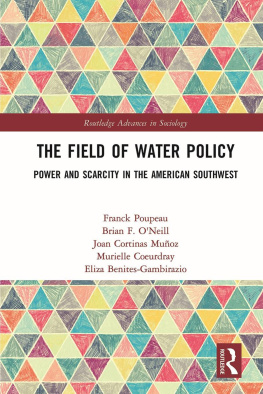
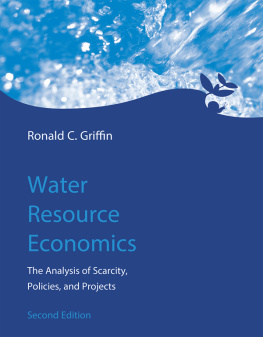
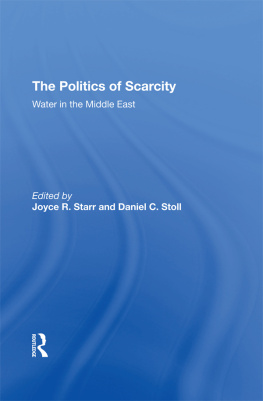

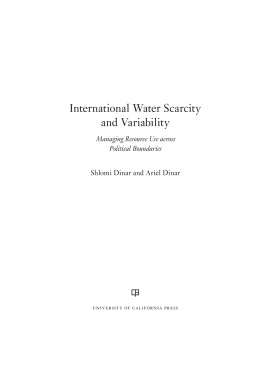
![David E Newton] - The global water crisis : a reference handbook](/uploads/posts/book/104432/thumbs/david-e-newton-the-global-water-crisis-a.jpg)
